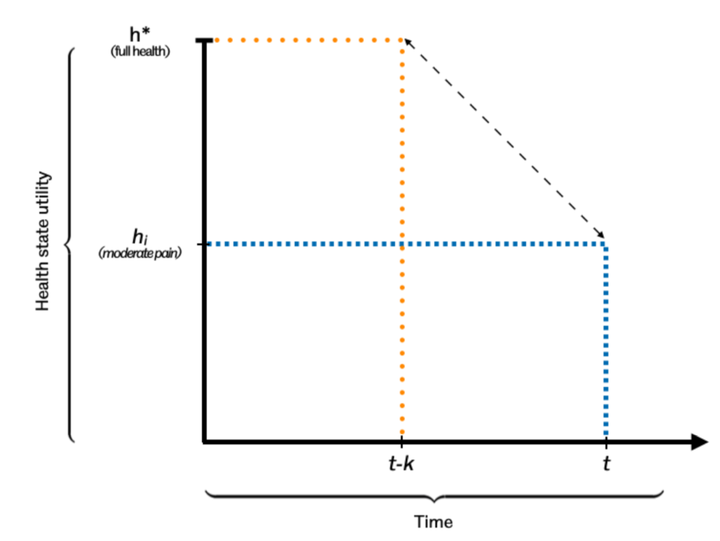Summary
The time trade-off (TTO) method is widely used to elicit individual preferences over (EQ-5D 3L, 5L, and Y) health states. Resulting utility values, measured on a scale that is anchored at full health and dead, are commonly aggregated across individuals, in order to derive a social value set. Here, we argue that this aggregation procedure is problematic, because it fails to take into account that TTO utility values are not only determined by an individual’s preference for the quality, but also for the quantity of life. As a consequence, when health state utilities are aggregated across different individuals, individuals with a wider range of utility values have – simply for arithmetic reasons – more weight in the estimation of the social value set. Inspired by relative utilitarianism, we propose an alternative aggregation procedure, to equalise individuals’ weights in the estimation of social health state values. We apply the alternative procedure to an EQ-5D 3L data set and compare the results against the conventional social tariff.
